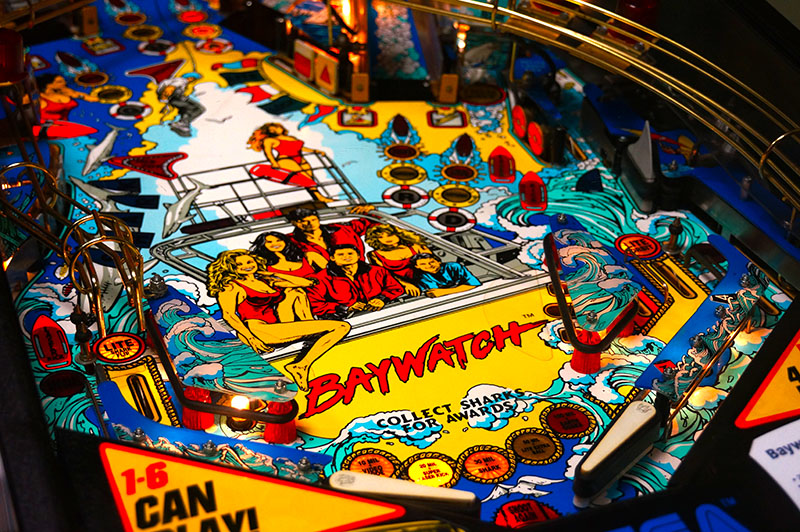Today, pinball may seem like it is a popular game to play around the country, but pinball did not start out that way. From the early 1940s well into the 1970s, pinball was actually banned. Big cities like New York, Chicago, and Los Angeles banned the game because it was a game of chance, and they were trying to get a hold on gambling during that time. The mayor of New York at the time, Fiorello LaGuardia, believed that pinball machines were a way for the mafia to nickel and dime the lunch money that was given to school children.

The Extent of the Ban
The pinball ban began in New York, and the other major cities followed suit shortly after. One week after the bombing of Pearl Harbor, the police in New York City began performing prohibition style raids where the pinball machines that were found in public locations were seized. The owners of these establishments were also arrested for going against the pinball ban.
Within a matter of days, thousands of pinball machines were confiscated, and to make matters worse, the mayor and the police enforcing the ban were seen smashing these beautiful machines with sledgehammers. Instead of simply confiscating the machines, they decided to make a public display of the destruction of the machines. Once they were smashed to pieces, the parts that remained were dumped into the river.
How Pinball Survived
The ban did not kill pinball; in fact, the only thing that it did was make the pinball machines move to seedier locations where they would not be seized. Many of the machines found new homes in places like Greenwich Village and Harlem. Raids still happened well into the 1970s, but all of the pinball locations were not discovered, which helped keep the game alive.
Many of the public locations that still housed pinball machines removed the pay-to-play feature, which made it impossible for the authorities to consider it gambling. Instead, the games advertised free balls, which made it different than free games and helped differentiate the pinball machines from games of chance (slot machines).
In addition, pinball was only illegal in public locations, so many of the machines that were in danger were moved to private residences where they could not be confiscated.
Legalizing Pinball
During 1976, the city council in New York City agreed to re-examine the status of pinball machines, and the ruling was overturned. This was not an easy task because the way that it was overturned is that it was proved that pinball is a game of skill, not a game of chance. The Music and Amusement Association (MAA) searched the city for a talented pinball wizard who could demonstrate his pinball skills in front of the city council. 26-year-old Roger Sharpe, who was one of the most talented pinball players in the country at the time, took on the role and made history.
The MAA brought two different pinball machines to the hearing so that in the event that something happened to the first one, there was another one that they could use for their demonstration. Mr. Sharpe had played on the first model before, so he knew the ins and outs of the machine, but a councilman insisted that he played on the backup machine to prove that the machine wasn’t rigged.
As he pulled the plunger to release the ball, he stated that he was going to get the ball into the middle lane during this shot, which is exactly what happened, proving that it takes skill to play a pinball machine. The ban was immediately overturned based on that one shot, which made history around the world. If Mr. Sharpe had missed that shot, pinball may still be banned to this day.
Still Illegal
Even though the ban was overturned in New York, that did not mean that pinball would be legal in all of the states. Yes, they mostly removed the ban over time, but cities like Nashville, Tennessee did not allow children under 18 to play or even stand near a pinball machine until 2004. In addition, playing pinball in Ocean City, New Jersey is still illegal on Sundays.
Pinball Today
Even though companies like Bally continued to manufacture new pinball machines during the ban, they did not last. Today, there is only one company that creates new pinball machines, and that is Stern Pinball, which is located in Chicago, Illinois. However, many of the pinball machines that survived the prohibition style raids can still be played today.
What Happened to Roger Sharpe?
He continued to play pinball with amazing skill for years after the ban was lifted, but today he has been overtaken by two other Sharpe boys. His son Zach is rated the number one pinball player in the world, and his other son Josh does not fall far behind at number 15.
Jessica Kane is a writer for The Pinball Company, the best online source for new, used, and refurbished pinball machines, arcade cabinets, and more!
Leave a Reply